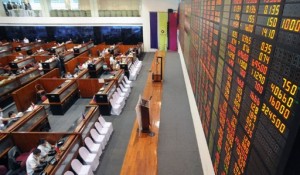Several tax incentives granted to a number of sectors were “unnecessary,” and the benefits gained from supporting these investments were mostly less than the cost shouldered by the government, the Department of Finance said yesterday.
Citing a cost-benefit analysis of fiscal incentives done by the DOF using 2015 data generated through the Tax Incentives Management and Transparency Act or Timta Law, Finance Undersecretary Karl Kendrick T. Chua told the House committee on ways and means that for every P1 in tax perk given away by the government, between P0.60 and P1.15 come back in benefits to the economy.
The House ways and means committee chaired by Quirino Rep. Dakila Carlo Cua yesterday tackled the proposed second tax reform package which was aimed at reducing corporate income tax rate which is now at 30 percent, the highest in Asia, while rationalizing the fiscal perks granted to investors.
By sector, every P1 in tax incentive given to manufacturing projects gives a return of P0.81-P1.34; agriculture, P0.73-P1.20; services, P0.45-P0.94, and nonmanufacturing activities, between zero and P0.74.
Chua said there were many investment projects that were “very long-term recipients” of tax incentives.
“Many firms are profitable but are still enjoying incentives,” he added.
For Chua, incentives were not necessary if the projects serve the domestic market, as there was a ready market for their goods and services.
As for investments tapping resources—for instance, natural resources such as minerals as well as human resources, Chua said perks were also not necessary because investors would already be making use of these resources.
But in the case of exporters, tax incentives are necessary because the Philippines is competing with neighboring countries in hosting these investors, Chua said.
Based on the DOF’s analysis, 70 to 100 percent of incentives to the following sectors were unnecessary: housing; mining and quarrying; energy (refining, storage, marketing and distribution of petroleum); coal and diesel, and renewable energy.
Among the perks extended to voice-based business process outsourcing (BPO) firms, 59-85 percent were unnecessary; 52-76 percent among manufacturers of wood, glass, paper, plastic, ceramic and rubber products; 52-75 percent among electronics manufacturers; 43-62 percent among metals and steel manufacturers, and 40-57 percent among personal care and medical products manufacturers.
Those with the least number of unnecessary incentives relative to total were garments (23-32 percent); chemicals (16-23 percent); nonvoice BPO (11-15 percent), and food manufacturing (4-6 percent).
Finance Secretary Carlos G. Dominguez III said foregone revenue due to these tax incentives hit P376 billion from 2015 to 2016.


